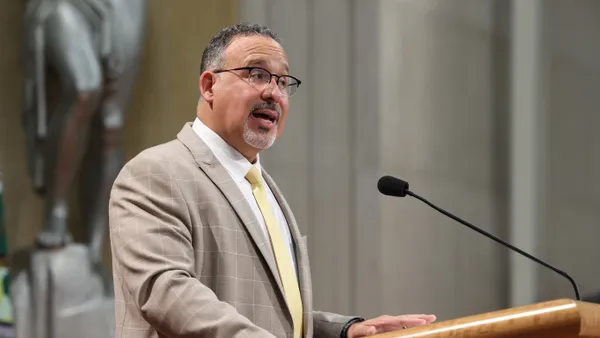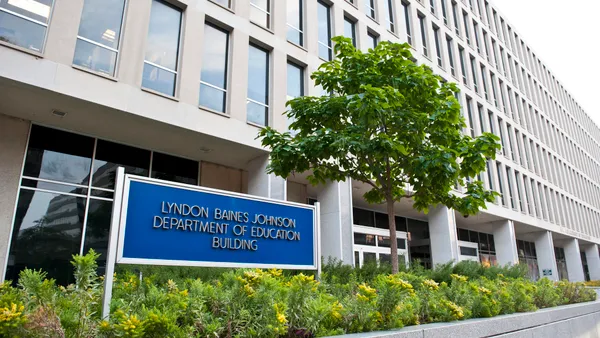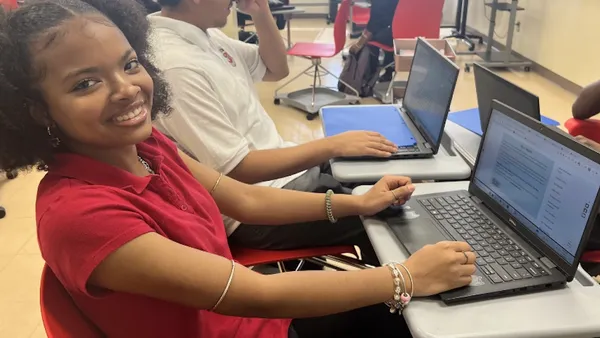Dive Brief:
- To help students graduate faster and avoid excess costs, the University of North Georgia is implementing a "Momentum Year" beginning in the fall of 2019, the Gainesville Times reported. It is part of a systemwide initiative to increase college completion rates.
- Forty-two percent of full-time undergraduates at Georgia's public colleges and universities will not graduate within six years, and 15% don't return after their freshman year, according to data from the Georgia Budget & Policy Institute.
- During the Momentum Year, students take at least 30 credit hours, with nine in their potential academic area of focus and additional core math and English courses. The program is designed to develop a growth mindset while keeping them on track to graduate.
Dive Insight:
The University System of Georgia's Momentum Year program is one of many examples across the country of how higher education institutions are investing in new ways to help students be successful.
Just over half (59%) of students who started a bachelor's degree in 2009 completed it within six years — breaking down to 59% for public institutions, 66% for private nonprofit institutions, and 23% at for-profits — according to data from the National Center for Education Statistics. More time spent in college can slow entrance into the workforce and increase tuition costs for students.
Institutions can use several tactics to improve student success in the first two years of college. They include increasing student engagement through active learning, adding more flexible learning options for nontraditional students, integrating holistic student support services into the campus culture and using data to help guide the student experience, Inside Higher Ed reported.
It is especially important to meet the needs of low-income students, as many arrive at college behind in math and English courses. This delays them from taking courses that will count toward their degree, adding time and cost to their goal of graduation. Summer bridge programs are one way to support students in developmental courses. Some research has found that students who enrolled in summer bridge programs were more likely to pass college-level math and English courses in the fall.













